Perhaps, when we were growing up and constructed the idea that we should strive for a life of pure joy, we were misled by our naivety. Not entirely, but a little. Every human being has shadows lurking within them, and it is when we run away from them and try and shut them off that they begin to take control of us.
Up to three-quarters of people who live to see the other side of trauma report problems with alcohol. Not to mention the clear link between childhood abuse and substance abuse disorders later in life. Emotional sobriety can often be the final hurdle for recovering addicts. Let’s take a look at exactly what it is, and the steps that can be taken to help attain it.
What is Emotional Sobriety
The simplest possible definition of emotional sobriety would be ‘a state in which you can deal with your feelings in a positive manner’. This does not, for a second, suggest that we should disassociate from the pain of our past and run around worry-free. This is not a realistic goal, albeit an idealistic one.
An emotionally sober individual is able to exist with their feelings and not fall victim to the knee-jerk pushes and pulls that often result in less desirable decisions. It requires inner strength. It requires being able to face whatever comes your way without running to the destructive crutches that have ‘helped’ you in the past.
If you’ve ever met those people who seem calm and reflective. They are entirely present in pain, just as much as they are humble and composed in joy. They seem to have an unshakeable sense of inner peace. That is emotional sobriety. It is close to serenity, and it is entirely attainable.
Sober Suffering
It’s very difficult for many people to just sit with themselves, let alone those who have experienced unresolved suffering. Its natural for us to reach towards distractions that help to mask the pain. This is why so many people who have experienced trauma turn to drugs and alcohol. They dampen the blow.
When we become sober, there is no cushion for the pain, and so, for the first time in what might be a long time, the pain is very real. And often overwhelming. It can feel like a double-edged sword. We expect to feel better for taking control of our addictions, but as a result, we are faced with increasing emotional suffering.
The dilemma we must face here is not the agony itself, but how we go about facing it.
Facing the Past
George Santayana, a Spanish philosopher, once said “those who cannot remember the past are condemned to repeat it.” Nothing could be truer when it comes to achieving emotional sobriety.
Our past traumas will continue to affect us until we learn to understand exactly what they mean to us. While they can quite commonly lead us to substance abuse and other addictions, they also manifest themselves as depression, anxiety, and other mood disorders. They can affect how we eat and sleep, and how we view the world.
The most common manifestation of past trauma, especially ones experienced in childhood is a sense of neglect; that we are not worthy of love. This can not only have a huge impact on our relationships with others but how we relate with ourselves. It is difficult for someone who has experienced abuse to hold a worthy opinion of themselves.
By facing the past, by talking about it directly, it can help us to understand how it has shaped our behavior and affected our thought process. Of course, it will not make it go away immediately, but understanding our traumas and what they mean to us is a large part of the battle won.
Moving On
Once you begin to understand how your addiction is a means of escaping underlying psychological pain, you can begin to unravel how the past affects you and begin to move on. A large part of this is finding new ways to deal with the pain that is no longer being masked, and accessing all the help you can get.
Mindfulness and Meditation
All of our emotions are perfectly natural responses. There are no ‘wrong’ emotions, just some that are harder to exist with than others.
Mindfulness teaches how to be present in the moment, whatever that moment might be. It focusses on taking one thing at a time and not projecting into a fictional future. We have all felt sad and wanted to feel happy again, but that desire to be happy only amplifies the feeling of sadness at that time.
Learning to explore your emotions as bodily sensations is a great way to help reduce the agony you might associate with them. When a negative emotion arises, one you might usually associate with needing to take a drink or use a drug, you should examine how it physically feels.
Instead of rushing to distract yourself from your emotions immediately, work through the different sensations you can feel. Do you feel sick? Do you feel tense? Are you out of breath? Do you feel hostile towards yourself?
Begin to label all the different things you can feel. As you sit and explore them you will find that their intensity diminishes. Think of ‘the elephant in the room’ or Jordan Peterson’s interpretation of ‘There’s no such thing as a dragon.’ The more we allow ourselves to sit and mindfully explore our emotions, the less control they will have over who we are.
Creative Outlets
A very effective way to face your pain is to have a conversation with it. I don’t mean sit talking to yourself -not to say that that won’t help! Finding a creative outlet such as writing, painting or music can help us to process our emotions by providing a cathartic means of facing them without having to run.
The simple act of keeping a journal that you use to express how you feel as you feel it means that you are staying still and being mindful of your emotions. There is a sense that you are learning to use them instead of the other way around.
Numerous books and blogs have been written by people who used them to process difficult times in their own lives, and many of them have proven to be as useful for others as it was for them.
Exercising Demons
As bad and debilitating as it might feel, pain is a kind of energy. You only have to look at public figures such as Mike Tyson and Mark Hunt to understand that past trauma can be turned in to usable aggression and intense focus. It’s hard to imagine where Mike Tyson would have ended up if he hadn’t have found boxing.
A form of exercise can help give you some respite from emotional suffering, but more importantly, it gives you something productive to channel that pain in to. You don’t necessarily need to don a pair of boxing gloves! Running, team sports and martial arts can all help you maintain your focus towards emotional sobriety.
Channeling Pain
Creativity and exercise are both great ways to channel your pain, but it doesn’t end there. The hard truth is that there is always going to be some pain. The trick is finding ways to channel that pain into something that betters you.
Helping others by sharing your experiences can be great emotional sobriety work. It can help to build your confidence, create a greater image of self-worth, and in the end, you might learn to realize that all that pain you were so desperate to be free from can actually be put to good use.
Support Networks
Don’t go at it alone. At times of stress, it’s crucial to have a support network you can access. You should have people around you who care about how you are doing, and just as importantly, you should care about how they are doing too.
Having familiar people around you means that they can step in if they notice anything that might manifest as a relapse. It also means there are always people nearby if your emotions ever feel like they’re getting the best of you.
Recognizing and Avoiding Triggers
There are always triggers that lead to unwanted behaviors. When that unwanted behavior might be a relapse, you’re going to want to learn to spot them a mile off. Anything from certain people and places, to songs and times of day; learning the circumstances that can result in temptation means you can avoid them.
Have a Plan
Having a structure to help keep you on track is a great way to hold on to your emotional sobriety. As much as we might pine for freedom, we are all creatures of habit. Filling your day with pre-organized activities helps to remove those unwanted lulling periods where you can end up getting stuck in your own head.
Not only that but make a plan should disaster strike. Have a clear idea of what you should do if you feel like you might relapse. Are there certain people you would contact, or certain activities you might participate in to help snap you out of it?
Embrace Who You Are
Maintaining emotional sobriety is going to feel easier at some times than at others. Throughout it all it’s important to be mindful of who you are and what you’ve been through. Remember to always treat yourself like you would treat someone you are responsible for helping. As you well know, not every life is lived easily, but you’ve made it this far, so you might as well make it better.
If you or someone you know is battling addiction, don’t hesitate to contact us to find out how we can help you on your road to recovery.


